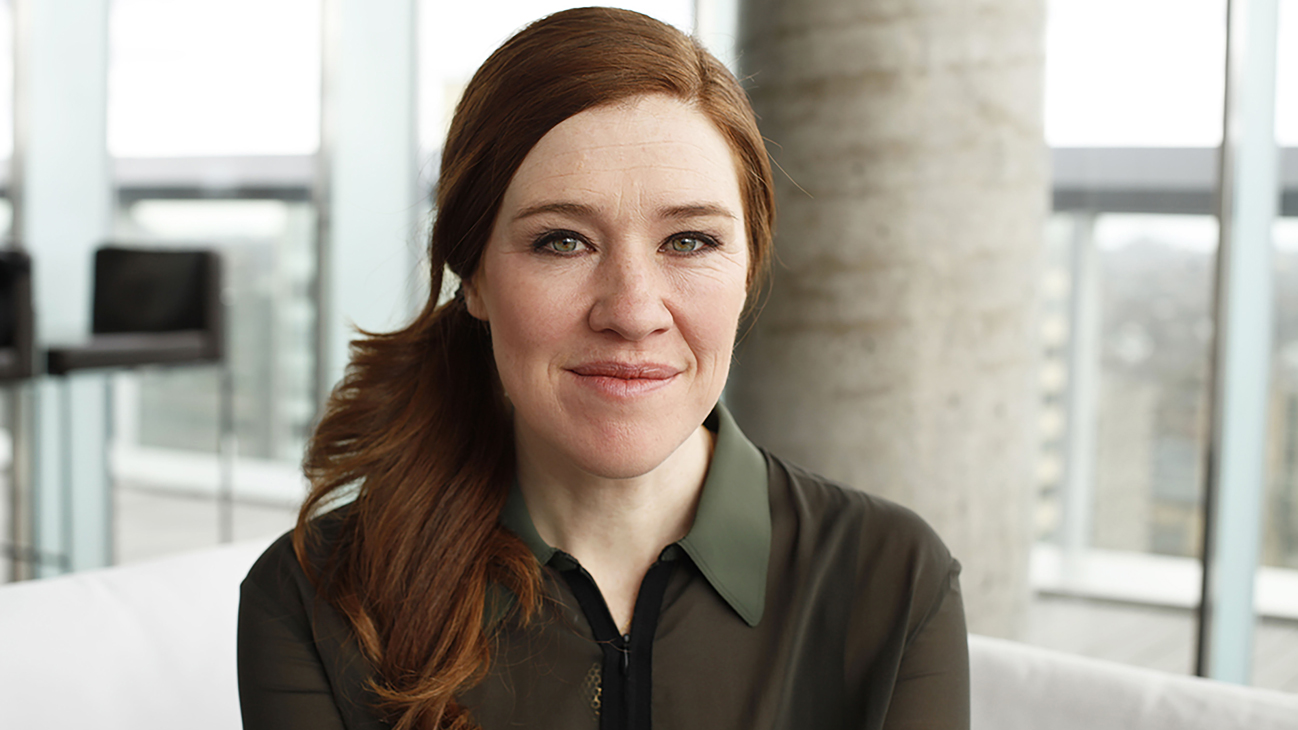Sporting a brilliant blue blazer and her trademark smile, Clara Hughes delivered a commanding Ted-Talk style presentation this week at the University of Calgary.
The six–time Olympic medallist in cycling and speed skating earned a standing ovation, leaving some audience members in tears, with a frank discussion about her history of depression and an emotional plea to eliminate the stigma surrounding mental illness.
But as the lunch-time crowd filed out of the MacEwan Conference & Event Centre, Hughes quietly admitted the battle is far from over in terms of her own mental health. There’s no Hollywood happy ending, even for the public face of the Bell Let’s Talk campaign.
“I had a relapse into depression,” Hughes said softly. “I was really, really struggling. It started in the late summer and it really manifested in December.”
Hughes, 44, is known for her incredible pain tolerance and ability to gut through even the toughest of races both on her bike and on skates. But when it comes to her mental health, she realizes she can’t simply push through at any cost.
“I came in often to Calgary to see my psychologist to get help,” said Hughes, who lives about an hour away in the mountain paradise of Canmore, Alta. “I had to cut out alcohol. I had to do a lot of things to get my head above water. And I’m still not out of it.”
Back in July, Hughes slipped while hiking on Haida Gwaii, B.C., injuring her knee. Most people would have a tough time getting up from a torn anterior cruciate ligament, but the fit Hughes didn’t realize the extent of the damage until months later. Quietly battling depression and knee pain, she worked the 2016 Rio Summer Games as an analyst for CBC.
“I wasn’t well in Rio,” she said. “And it’s okay. It’s something I live with.”
Hughes routinely preaches that movement is medicine, that physical activity — preferably outdoors — is essential for mental health. The knee injury, and subsequent reconstructive surgery in late December, seriously limited her ability to lead an active life.
But through it all, Hughes kept criss-crossing the country to speak out about mental health. She gives every speech her all, even when the tears lie just below the surface and it hurts to climb out of bed.
“I’m stepping back from a lot of things,” said Hughes, one of this country’s most beloved athletes and a member of the Order of Canada. “Towards the end of this month, I’m taking a break — just kind of backing off. I just really need to take some time to get my mental health in check. It’s a natural thing. There’s no crisis situation. It’s just something I feel really good about.”
When Hughes retired from speed skating in 2010, the long-track team did not fold. She learned a valuable lesson: no one is irreplaceable and others will always step in to fill the void.
So while she’s taking care of herself this spring, likely by walking through the forest, listening to the birds and breathing in the mountain air, she’s confident others will make their voices heard in the national discussion on mental health.
Hughes said she is beyond grateful for the world-class medical care she received for her knee, free of charge as a Canadian citizen, in Banff. She only wishes Canada had a similar standard for treatment of mental illness.
“Imagine if mental health was supported in the same way,” she said. “It makes me really sad, because that capacity is there. We haven’t yet placed the importance and put the backing of funding behind it. I really have strong hopes and dreams that is going to happen in my lifetime.”
As the face of Bell Let’s Talk, people from all walks of life routinely open up to Hughes about their own experiences with mental illness. Athletes, politicians, strangers on the street — many tell Hughes secrets they’ve never told anyone else. The burden could be immense, but Hughes sees herself as a witness as opposed to the nation’s counsellor.
“My husband heard someone talking to me years ago when we had to go get on a plane,” Hughes said. “And I was like, ‘How could I leave that person?’ I felt so bad.”
Her husband told her to get over it.
“He said, ‘You didn’t see that person walk away. Their shoulders were more back. Their head was a little higher. They don’t want any more from you. You’re not their doctor. You’re not healer. You’re just someone who listens. And that’s enough.’”

